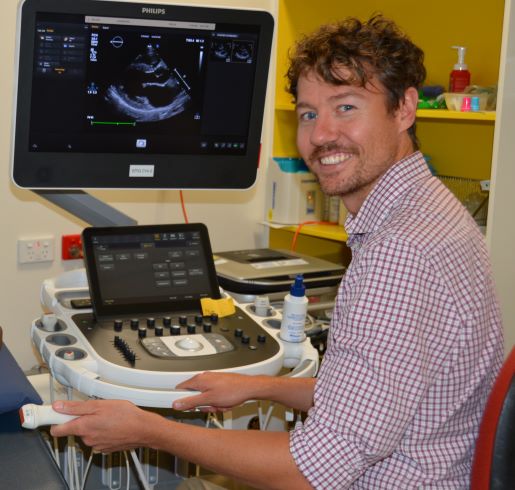 Clinicians can be “a little more relaxed” about mild and moderate rheumatic heart disease (RHD) than previously thought, with many paediatric patients returning to normal function over time without surgery, Australian researchers are arguing.
Clinicians can be “a little more relaxed” about mild and moderate rheumatic heart disease (RHD) than previously thought, with many paediatric patients returning to normal function over time without surgery, Australian researchers are arguing.
The optimistic message is based on a first-of-its-kind study examining changes in the echocardiograms of 146 patients at Perth Children’s Hospital over time from 2004 to 2020.
At least three echocardiograms were reviewed for each of the patients — all aged five to 14 — to track left ventricular remodelling. The results were reassuring in mild and moderate cases, said the authors led by paediatrics registrar Dr Bradley MacDonald.
“From our findings, there is a suggestion that we can be a little bit more relaxed and should now watch and wait in moderate and mild patients,” Dr MacDonald said.
“We still have to closely monitor these patients and catch up regularly but from a heart perspective we now know from the study findings that we should not rush into surgery or intervention because their heart inflammation and valvular damage may settle down. Heart function may get better and closer towards normal over time.”
Some 85 patients had mild, 33 moderate and 28 severe RHD, with 10 of those with severe disease undergoing valve surgery after the study period
Over a median 4.6-year follow-up, the mild RHD patients had left ventricular (LV) indexed volumes which remained similar over time.
The moderate group had a similar profile, only showing differences at baseline for LV end-systolic diameter (z-score mean difference: 1.36, P = 0.008) and end-diastolic diameter (difference: 1.76, P = 0.002) compared to controls.
On the other hand, patients with severe RHD had significantly increased indexed end-systolic volume (ESVi) and end-diastolic volumes (EDVi) compared to controls (mean difference ESVi: 11.47 ml/m2, P < 0.001; EDVi: 29.81 ml/m2, P < 0.001) and other severity groups with preserved LV function.
But the fact that LV remodelling did not progress in the mild and moderate groups suggested these patients could be monitored safely in the medium to long term, the team reported in the Journal of the American Society of Echocardiography.
“The LV of milder forms of disease is indistinguishable from controls,” they wrote.
Dr MacDonald, who undertook the study as part of a PhD at the University of Western Australia, said the results should inform management protocols, particularly given the heavy burden of RHD in remote areas.
“I have worked in cardiology at Perth Children’s Hospital and seen the extreme ends of this disease, the impact on families and the challenges that it brings,” Dr MacDonald said.
“A lot of our kids that we see are from the Kimberley and it can be traumatic for them spending significant time away from family and social support while in Perth seeking treatment.”
“Getting them back home as quickly as possible is important.”